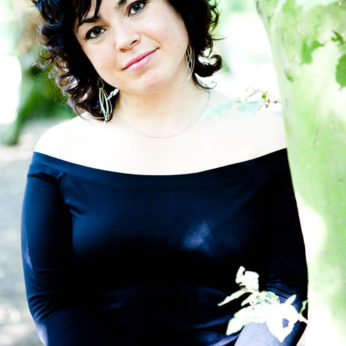Composer: Pavel Haas (b. 1899 - d. 1944)
Performance date: 29/06/2010
Venue: Bantry Library
Composition Year: 1939
Duration: 00:17:24
Recording Engineer: Anton Timoney, RTÉ lyric fm
Instrumentation: S-solo, pf
Instrumentation Category:Duo
Artists:
Katya Apekisheva -
[piano]
Charlotte Riedijk -
[soprano]

Pavel Haas was in Terezin from December 1941 until he was
transported to Auschwitz in October 1944. While
in Terezin he wrote at least eight works, three of which survived. Due to a drastic
shortage of manuscript paper, most Terezin compositions were learnt by heart,
The Oboe Suite was written in the dark
days of Czechoslovakia’s long
nightmare that began with the craven Munich Agreement in 1938 followed by the
complete Nazi occupation in March 1939. Haas made several unsuccessful efforts
to leave the country but he did succeed in protecting his family by divorcing
his wife, who along with his daughter survived the War. In these bitter times,
fearing but not yet knowing the worst, the composer tries to balance his
desperation with hope. The opening Furioso lives up to its name, an opening
subject that is a cry of protest and pain is contrasted with a melody that
seems momentarily to sing of hope but fades into uncertainty. The fiery second
movement strides out boldly and indeed as if to confirm this boldness, he
quotes the Hussite hymn Ye who
are God’s warriors,a symbol of Czech militancy ever since Smetana’s Má Vlast. And he reinforces this in the
final movement by quoting the tenth-century Saint Wenceslas chorale, used
several times in the twentieth century to symbolise the Czech people when ever
danger threatened. At the end Haas transforms his music into a sung lament of
devastating power and beauty.
Copyright © 2025 West Cork Music. All rights reserved.
Designed and developed by Matrix Internet